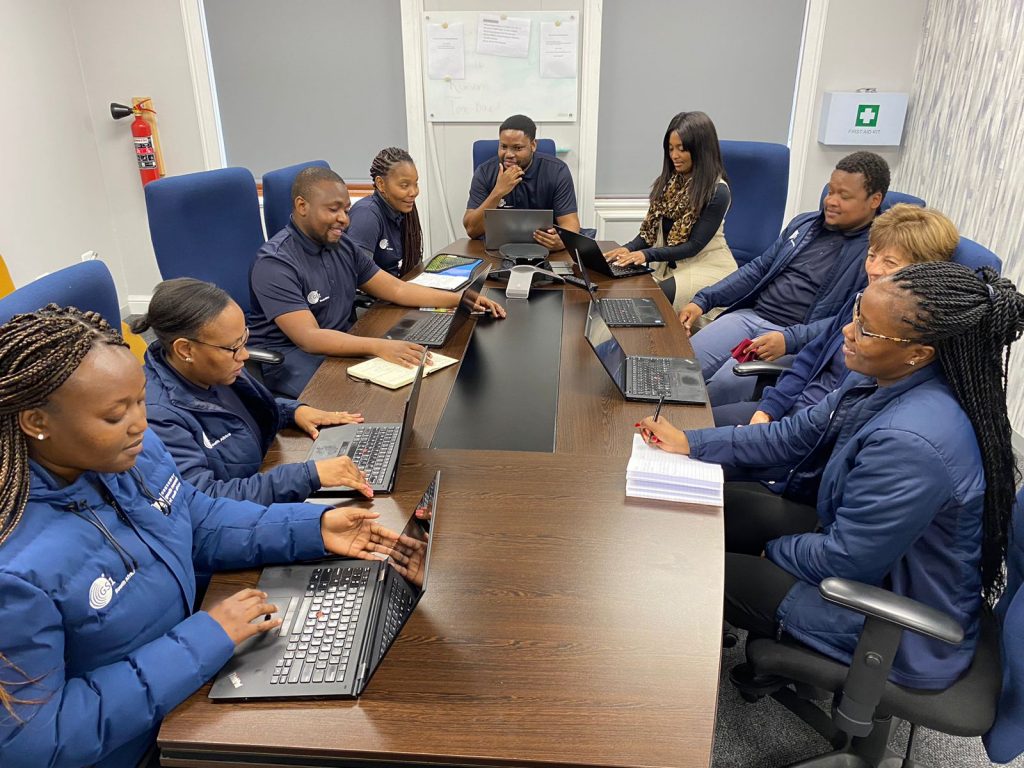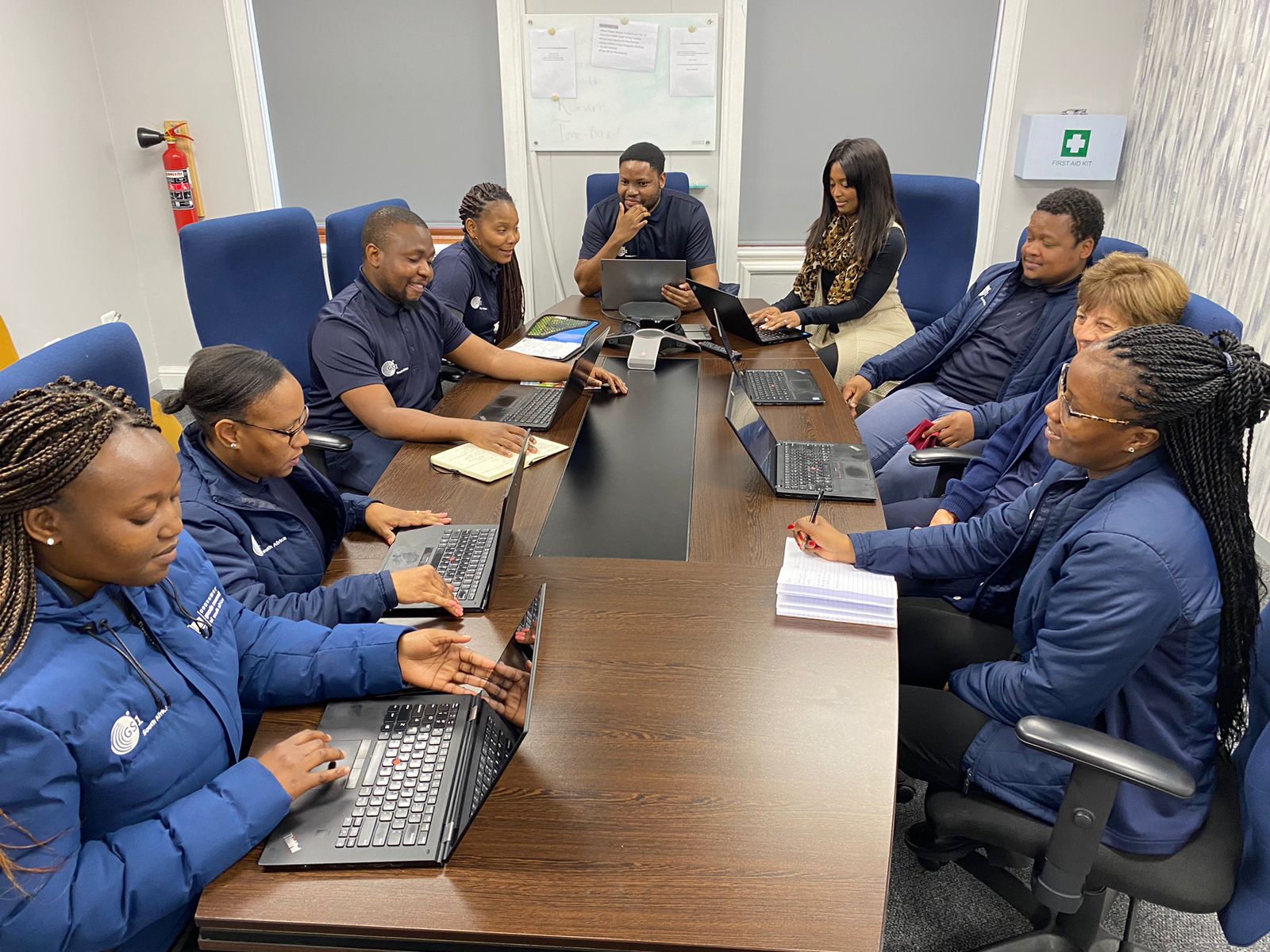As the representative of 9,000 companies in the fast-moving consumer goods sector, the Consumer Goods Council of South Africa (CGCSA), a not-for-profit industry association, is aware of its role in helping shape the health and well-being of South Africans. While only employing a relatively small staff of 54 people themselves, CGCSA members collectively employ about 20% of the total formal labour force in South Africa.
Acknowledging the significance of their platform, the CGCSA launched a voluntary programme in 2015 called the Healthy Food Options Industry Initiatives (HFOIIs) which aimed to make healthier food options available and accessible to consumers in South Africa.

“This was in an effort to support the South African National Department of Health’s strategies to prevent and control obesity and non-communicable diseases,” explains Linda Drummond, consulting dietitian at CGCSA and project manager of the HFOII initiative. “At the time, this range of initiatives was focused on the foods members were manufacturing and or selling, as well as how these were promoted over a period of 5 years.”
On surveying, they however found that many companies were already involved in activities related to employee wellbeing. These ranged from hosting annual wellness days to running comprehensive employee assistance programmes. This inspired the CGCSA to include workforce nutrition commitments into the new Healthy Food Options Industry Initiatives commitment period, which was launched in 2023 and will run until 2027.
“The CGCSA, as an employer of people, has signed up as a signatory to the workforce nutrition commitments to improve their own employees’ wellbeing and to help support their members do the same within their organisations,” explains CGCSA CEO Zinhle Tyikwe.
For support in learning how to set up a successful workforce nutrition programme, the CGCSA signed up to the GAIN Workforce Nutrition Alliance (WNA) Masterclass series1 that ran from March to June 2023.
The workforce nutrition journey
To date, the CGCSA has not encountered any significant challenges in setting up a workforce nutrition programme, although the work is only at its beginning stage. This can be attributed to the commitment being signed off by the CEO, and therefore enjoying the highest level of support.
According to Drummond a cross-departmental Nutrition Task Team has been established as a direct result of the WNA Masterclass, with the intent to take ownership of the programme and to ensure that it is executed across the organisation. The Task Team includes a representative that has an interest in nutrition and wellbeing in each department within the CGCSA. They all completed the WNA scorecard (a free self-assessment tool found on the WNA website, and which participants are encouraged to do prior to joining the WNA Masterclass series) individually based on their experience in the various departments and then they met to consolidate the findings and finalise the scorecard assessment. “We saw that the CGCSA is currently on a beginner level when it comes to implementing principles of workforce nutrition. Work is now underway to use the results of the scorecard to draft a plan to implement a relevant and achievable workforce nutrition programme for the organisation,” says Drummond.

As an industry association, the CGCSA has promoted the new HFOII commitments among its members through a series of group and individual company engagements. According to Drummond 14 organisations have already signed up to the new commitments and a kick-off meeting was held with the companies that had made workforce nutrition commitments. “The aim is to have all of these organisations complete their scorecard and to then set up a programme aimed at improving their scores over the five year period. Scorecard assessments will be conducted annually to assess improvements in scores,” explains Drummond.

Useful tools and action plans
According to Drummond, the WNA Masterclass sessions were instrumental in assisting the CGCSA to start the process of developing a workforce nutrition programme. She credits the Ambassador Mapping Tool, provided during the Masterclass, for guiding them to establish a cross-departmental Nutrition Task Team. “The WNA scorecard was a great starting point that allowed the team to understand what a successful workforce nutrition programme entails. The self-assessment process helped to identify areas that the team could start working on to improve their score.”
Of the four thematic areas recommended to be included in a successful workforce nutrition programme, the CGCSA’s Nutrition Task Team wanted to prioritise Nutrition Education as a focus area. All the members of the Task Team had an interest in nutrition and wellbeing but acknowledged that none had received any nutrition training and the nutrition information that they had access to did not seem credible e.g., from the media.
Given their new role in driving the planning and implementation of the CGCSA’s workforce nutrition programme, the Task Team requested to be trained in the basics of nutrition to enable them to become nutrition ambassadors within the company. In response to this, Drummond has begun training them in the basics of nutrition.
“The aim of this training is to improve the nutrition knowledge of the Task Team, and will be measured by the improvement in pre-training and post-training survey scores. Nutrition-related behaviour change will also be measured over time to determine whether any improvements occur as a result of the training and to identify barriers to change,” she explains. They believe this will help provide insights, along with other tools, which could assist the team when implementing interventions aimed at changing employee behaviour within the organisation.
Drummond says the WNA Indicators and Questions resource was particularly helpful in developing surveys that gather relevant information which will help the CGCSA assess the effectiveness of the nutrition training in improving nutrition knowledge among the Task Team members.
“The WNA Masterclass included several useful resources that the team is excited to use once the plan for the organisation has been fully developed and approved.”
Recommendations
The South African National Department of Health has identified workplaces as prioritised settings in South Africa in their new strategy for the prevention and control of non-communicable diseases among South Africans (2022-2027). According to Tyikwe, the CGCSA is encouraging all its members to make commitments to improve the wellbeing of their employees. “We believe this will have a significant impact on their health given the large number of people employed by the fast moving consumer goods sector, as well as the amount of time they spend at work.”
The CGCSA is promoting the use of the framework developed by the Consumer Goods Forum (CGF) and GAIN as a means of developing evidence-based programmes that yield successful outcomes. In addition, they are also requesting that all signatories complete the scorecard to determine where they stand as an organisation in relation to the four thematic areas and then to set goals to make improvements over time.
The CGCSA is committed to support signatory member organisations through this process and will survey participating members on an annual basis to assess progress. “We are encouraging signatories to use the resources that are freely available through the GAIN WNA platforms and to consider investing in having their worksites join the WNA Masterclass to gain access to personalised assistance and further tools to assist them in developing successful programmes,” says Tyikwe.
_______
References
[1] The Workforce Nutrition Alliance Masterclass is a course designed to assist organizations in the strategic planning, developing, and executing of a comprehensive workforce nutrition programme. Over the span of 3 months participants partake in a blended learning experience, consisting of interactive virtual group training sessions, online access to exclusive tools and resources, and one-on-one coaching sessions. This capacity-building programme is an excellent opportunity to learn and connect with like-minded professionals from across the globe, such as in-house HR-managers, sustainability executives and other managers or consultants concerned with employee wellness. The time investment is approximately 2 hours per week. Click here to learn more.
